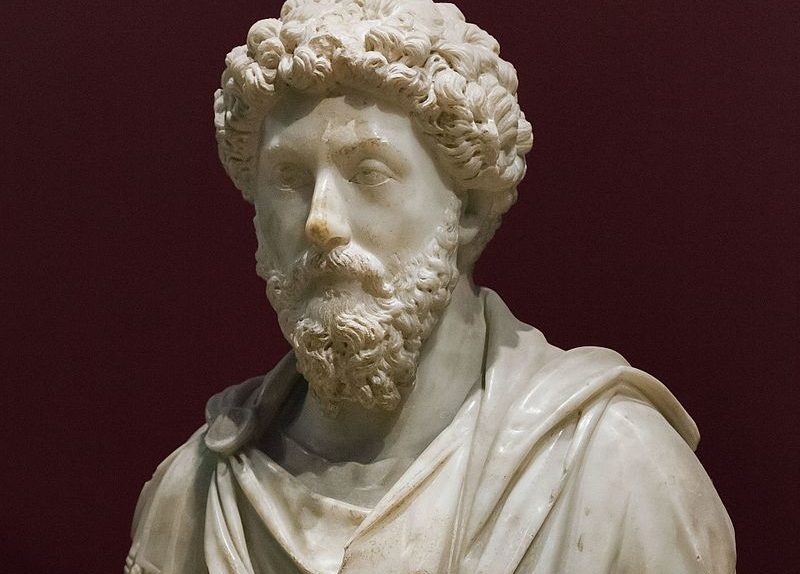Your experiences are filtered through your mind.
There is nothing in this world that you can see, know, or do that is not colored by your perception and your perspective.
In a very real sense, you can’t actually know anything as it truly is.
You can only know your experience of it.
Marcus Aurelius understood this.
His tutors made sure he understood from a young age, because they knew he would someday be emperor of Rome. And the emperor of Rome had to have his shyt together.
So they taught Marcus the philosophy of stoicism.
Marcus used the whetstone of stoicism to sharpen his mind and shape himself into the kind of person capable of ruling an empire—without descending into despotism or tyranny.
His reign wasn’t a walk in the park, either.
In addition to the daily stress of, you know, running the entire Roman Empire from 161 to 180 C.E., Marcus had to deal with barbarian invasions, wars with Parthia, the Antonine plague (which lasted basically his entire reign), poor personal health, and more.
You know the saying, “Power corrupts. And absolute power corrupts absolutely.” ?
It’s not 100% true.
Marcus did not descend into corruption.
He was, and remains, one of the wisest rulers humanity has known.
The fact that he had complete and total power over an entire empire makes this even more impressive, especially when he’s considered against some of the other humans who have held similar amounts of power.
How did he do it?
How did he rule an empire with strength and compassion, without falling into depression, madness, temptation, or tyranny?
By first ruling himself.
Throughout his reign, Marcus never forgot what his teachers had given him in the gift of philosophy.
He studied and practiced philosophy every day. He made the act of being himself both an art and a discipline. He sculpted himself into the kind of personality necessary for ruling Rome.
There was no room for mental or emotional laziness.
During the last decade of his life, Marcus kept a personal diary. Much of it was written while he was on active campaigns against invading barbarian tribes.
Today, we call this book Meditations.
Unlike our definition of a “diary” today, Meditations is not a recounting of events. It’s Marcus talking to himself, working with his mind, calming himself down, keeping himself in line, and encouraging himself.
Meditations reveals a thoughtful, compassionate, but firm man who demanded the best of himself, yet forgave the shortcomings of others:
“Concentrate every minute like a Roman—like a man—on doing what’s in front of you with precise and genuine seriousness, tenderly, willingly, with justice. And on freeing yourself from all other distractions.
“Yes, you can—if you do everything as if it were the last thing you were doing in your life. Stop being aimless, stop letting your emotions override what your mind tells you, stop being hypocritical, self-centered, irritable.”
And when he fell short of his own expectations, Marcus Aurelius practiced self-forgiveness and vowed to do better next time.
Marcus never intended his diary to be published. He wrote it for himself. To himself.
And while I’m sharing these messages with you, I’m writing them with a similar spirit.
These posts are about working with my own mind, primarily through the lens of Marcus Aurelius’s Meditations.
You’re welcome to come along with me.
(I don’t consider myself a Stoic. My personal practice of life is largely informed by my own internal or higher guidance. I work daily at keeping my connection with that guidance as clear as possible.)
If you want to focus solely on stoicism, I highly recommend subscribing to the Daily Stoic, if you don’t already. Start here.
Love,
L.
